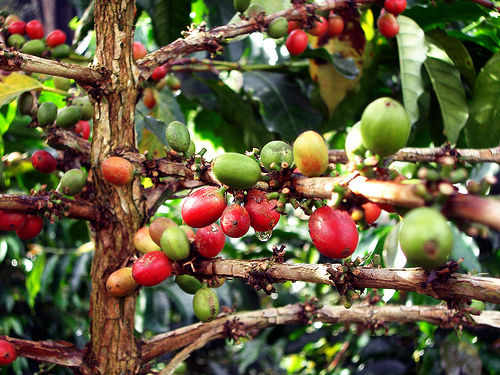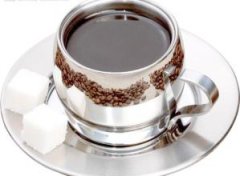Brazil is the largest coffee producer in the world. Fine coffee.
Fine coffee is made from boutique coffee beans. If the beans that make coffee are not boutique coffee beans, the coffee liquid produced cannot be called fine coffee.
Boutique coffee is fresh coffee. Whether it's food or drink, of course, the fresh the better, and so is boutique coffee. High-quality coffee should keep the coffee beans fresh before making, including the preservation of baked beans, and grind the coffee beans into powder before making, which is also to retain its original and best flavor. The way of making hand-brewed coffee is such a way to make high-quality coffee, and it is also one of the coffee-making methods that can best retain the original flavor of coffee.
Boutique coffee is good coffee and is harmless to health. Different from coffee made with low-quality coffee beans, high-quality coffee uses high-quality coffee beans and freshly made coffee, which is harmless to health, and drinking in moderation is beneficial to the body and mind.
Brazil (Brazil) aroma 3 minutes brightness 3.5 minutes mellow 3.5 minutes flavor 4 points aftertaste 4 points
Suitable for baking: the base beans used by City/Full city/Espresso as Espressode should not be baked too deep, because the bean density is low at low altitude, and the pot produces coke bitterness under deep baking, and it is best to start the pot before the second explosion. As for high-grade Brazilian beans, they can have a wide baking range, ranging from city to the middle of the second explosion.
Brazil is the largest coffee producer in the world, and its history can be traced back to the early 17th century. Although the output of Brazilian coffee is the largest in the world, most of them are low-quality Arabica beans and Robusta coffee beans. This is because most of the Brazilian coffee grows in a low altitude, non-volcanic soil, or even a prairie with no forest shade at all. These congenital defects cannot be made up for by new farming techniques, so most people in the boutique coffee world do not have a good impression of Brazilian coffee. However, this does not mean that Brazilian coffee is unbearable. In recent years, Brazilian coffee farmers have worked hard to equate Brazilian coffee with high-quality coffee, and the country's coffee associations have also done their best to help, and their efforts have paid off. the prices auctioned in the coffee market are also quite beautiful. The three main coffee producing areas in Brazil are Bahia, Minas Gerais and Sao Paulo, but most of the best Brazilian beans come from Minas Gerais, and the most famous Hirado is a small producing area in Minas Gerais. As for Santos,
(Santos) is the largest and oldest coffee export port in the bar, and beans marked Santos may come from anywhere in Brazil, so it is not a useful regional or grade indicator. Ordinary Brazilian coffee beans not only have a poor appearance and uneven size, but the important thing is that the taste is very mediocre and undistinctive, and some of them have an unpleasant smell of iodine. Good Brazilian beans come from old coffee trees grown in Bourbon. They smell like stone fruit, taste sweet and low acidity, have the bittersweet taste of chocolate, and some people use the term "extremely smooth and smooth" (Strictly Soft) to describe top Brazilian coffee. Brazil beans have always been an indispensable ingredient in Espresso recipes because they are rich in oil. Good Brazilian beans have mellow, flavor and sweetness, but they do not capture the flavor, providing the best stage for other coffee to enjoy.

Important Notice :
前街咖啡 FrontStreet Coffee has moved to new addredd:
FrontStreet Coffee Address: 315,Donghua East Road,GuangZhou
Tel:020 38364473
- Prev

Nicaraguan coffee from Notega and Matagalpa
Fine coffee is made from boutique coffee beans. If the beans that make coffee are not boutique coffee beans, the coffee liquid produced cannot be called fine coffee. Boutique coffee is fresh coffee. Whether it's food or drink, of course, the fresh the better, and so is boutique coffee. High-quality coffee should keep the beans fresh before making, including the preservation of roasted beans, and the coffee should be made before making.
- Next

Costa Rican coffee culture
High-quality Costa Rican coffee is called extra hard beans, and this kind of coffee can grow at an altitude of more than 1500 meters. Altitude has always been a problem for coffee growers. The higher the altitude, the better the coffee beans, not only because the higher altitude can increase the acidity of the coffee beans and thus increase the flavor, but also because the night temperature at the higher altitude is lower, which can make the trees grow slowly.
Related
- Does Rose Summer choose Blue, Green or Red? Detailed explanation of Rose Summer Coffee plots and Classification in Panamanian Jade Manor
- What is the difference between the origin, producing area, processing plant, cooperative and manor of coffee beans?
- How fine does the espresso powder fit? how to grind the espresso?
- Sca coffee roasting degree color card coffee roasting degree 8 roasting color values what do you mean?
- The practice of lattes: how to make lattes at home
- Introduction to Indonesian Fine Coffee beans-- Java Coffee producing area of Indonesian Arabica Coffee
- How much will the flavor of light and medium roasted rose summer be expressed? What baking level is rose summer suitable for?
- Introduction to the characteristics of washing, sun-drying or wet-planing coffee commonly used in Mantenin, Indonesia
- Price characteristics of Arabica Coffee Bean Starbucks introduction to Manning Coffee Bean Taste producing area Variety Manor
- What is the authentic Yega flavor? What are the flavor characteristics of the really excellent Yejasuffi coffee beans?

